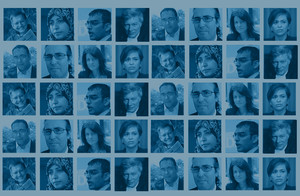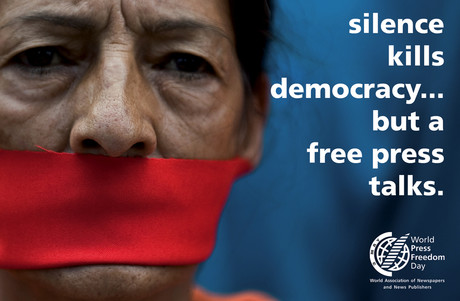In this section you will find editorials and interviews on the theme of 'Silence Kills Democracy but a Free Press Talks'. Newspapers can freely publish and translate the texts into any language, with credit to WAN-IFRA and the authors.
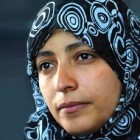 “In the absence of a free press, there is no democracy.”
“In the absence of a free press, there is no democracy.”
by Tawakkol Karman, Women Journalists Without Chains, Yemen
Tawakkol Karman is a Nobel Laureate, human rights activist, journalist, press freedom advocate and the co-founder of Women Journalists Without Chains. One of Yemen's foremost political activists, Tawakkol has organised protests and sit-ins to raise awareness of various issues including the release of political prisoners, government corruption, freedom of expression, and women's rights. Tawakkol received the Nobel Peace Prize in 2011 for her efforts in the advancement of woman's rights and her work in peace building, making her the youngest Nobel Peace Laureate ever and the first Arab woman to receive the award.
Tawakkol Karman spoke exclusively to WAN-IFRA about the importance of a free press in the Arab world.
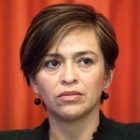 The Perverse Power of Silence
The Perverse Power of Silence
by Anabel Hernández, 2012 WAN-IFRA Golden Pen of Freedom laureate, Mexico
Anabel Hernández is a journalist and writer known for her investigative reporting on corruption and the abuse of power in Mexican politics, in particular for her work exposing the complicities between organized crime and high-level authorities in Mexico’s high-profile ‘war on drugs’.
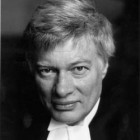 Protect the Sources
Protect the Sources
by Geoffrey Robertson Q.C., Human Rights lawyer, U.K.
Geoffrey Robertson Q.C. is a leading expert on media law in the UK and author of its leading textbook "Robertson & Nicol on Media Law". He has acted for many years for leading newspapers and television companies and his free-speech clients have ranged from Salman Rushdie to Julian Assange. He is a former UN Appeals Judge who delivered a leading decision on confidentiality of sources and as a barrister he represented journalist Bill Goodwin in the case that established the right of journalists to protect their sources in European Human Rights Law. He is founder and head of Doughty Street Chambers, the UK's largest human rights practice and is a 'distinguished jurist' member of the Internal Justice Council.
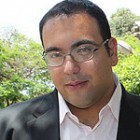 Anecdote, platitude, inspirational quote, etc…
Anecdote, platitude, inspirational quote, etc…
by Mahmoud Salem, blogger aka Sandmonkey, Egypt
Mahmoud Salem is an Egyptian blogger, activist, writer and entrepreneur. His is the most prominent English-language blog in Egypt, entitled "Rantings of a Sandmonkey". It won the best Middle East and Africa blog awards in 2006 and 2007, and has over 5.5 million unique views. His Twitter account has over 70,000 followers. He focuses on freedom of speech, human rights, religious rights, and women's rights. He was one of the leading voices in the January 25 revolution that brought down Egyptian president Hosny Mubarak, and he is currently involved in many development and transparency projects for a better Egypt. His writings have appeared in the Christian Science Monitor, The New York Times, The Daily Star, The Guardian and on various websites.
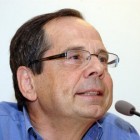 The 'free press' can also lie
The 'free press' can also lie
by Alain Gresh, Deputy Director, Le Monde diplomatique and host of the blog 'Nouvelles d'Orient'
Alain Gresh has published several books, including Les Cent clés du Proche-Orient, Fayard, 2011, and De quoi la Palestine est-elle le nom?, Les liens qui libèrent, 2010.
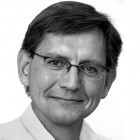 Silence kills democracy
Silence kills democracy
by Erik Bjerager, a Danish editor and President of the World Editors Forum
Erik Bjerager, born 1958, is editor-in-chief and managing director of the Danish national daily, Kristeligt Dagblad. He is a graduate from the Danish School of Journalism and holds an MA from The American University, Washington, D.C. Before taking his current post in 1994, Mr. Bjerager worked as a journalist in Denmark and abroad.
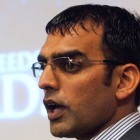 Silence kills democracy, but a free press talks
Silence kills democracy, but a free press talks
by Umar Cheema, investigative journalist, Pakistan
Umar Cheema is a reporter with Islamabad's The News. He was abducted in September 2010 by unknown assailants who stripped, beat and photographed him in humiliating positions. After the attack, he went on television to describe how his captors had asked him why he would not stop producing reporting critical of the government. Cheema's unwillingness to stay silent about his abduction and the abuses he suffered has drawn wide attention to the nationwide issue of anti-press violence in Pakistan.
It is important not only to express oneself, but also to have others enjoy this right
by Fahem Boukadous, journalist and activist, Tunisia
Fahem Boukadous is a Tunisian human rights activist and journalist who has been persecuted for his reporting. He was reporting on a social protest movement in the Gafsa Redeyef mining region of southern Tunisia for satellite TV channel Al-Hiwar-Ettounsi, when government authorities arrested him.
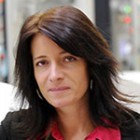 Mankind's most fundamental right
Mankind's most fundamental right
by Anette Novak, World Editors Forum board member, Sweden
Anette Novak is the former editor-in-chief of regional media house Norran in the north of Sweden, and has been a member of the board of the Swedish Media Association. During her time at Norran she worked to turn the 100 year-old newspaper into a modern media house with a focus on co-creation, moving the trademark position from “news leader” to “motor in shaping the community’s future.” She sits on the board of the World Editors Forum and currently works as a consultant, inspiring news media around the world to embrace the opportunities – without disregarding the challenges – in this era of digital revolution.
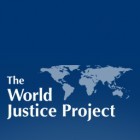 A free press is the cornerstone of a society governed by the rule of law
A free press is the cornerstone of a society governed by the rule of law
by The World Justice Project
The World Justice Project (WJP), an independent, non-profit organization, works to advance the rule of law for the development of communities of opportunity and equity worldwide. The WJP's multinational and multidisciplinary efforts are aimed at: government reforms; development of practical programs on the ground in support of the rule of law; and increased awareness about the concept and impact of the rule of law. The Project has three complementary programs: Research and Scholarship, the World Justice Project Rule of Law Index®, and mainstreaming practical on-the-ground programs to extend the rule of law.
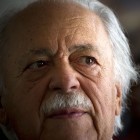 Freedom of expression and the law
Freedom of expression and the law
by Geroge Bizos SC, lawyer and human rights advocate, South Africa
George Bizos is an iconic South African lawyer who has defended a wide range of prominent anti-apartheid figures including Nelson Mandela, Govan Mbeki and Walter Sisulu. He has been a senior member of the Johannesburg Bar since 1978 and is a member of the National Council of Lawyers for Human Rights, which he helped found in 1979. He served as advisor to the negotiating teams who drew up the Interim Constitution during the end of the apartheid system in the early 1990s.

